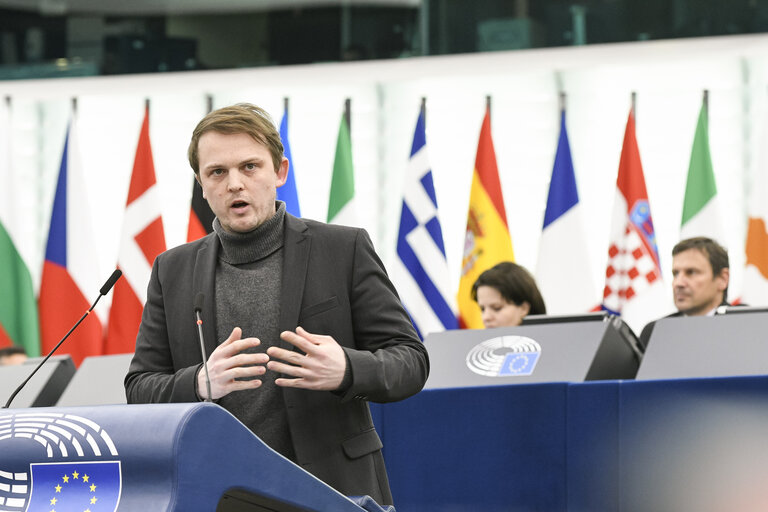Parliament criticizes funds for Tunisian autocrats

In a Resolution of the European Parliament we MEPs criticized the release of funds for the Tunisian government. You can find my speech in plenary here.
The EPP and Renew Europe groups opposed the resolution, as did the ECR and ID groups. Our group's request for it to be dealt with was nevertheless successful. Clear criticism was voiced, for example, of the fact that the Commission had decided to make payments to Tunisia in an emergency decision at the end of last year in order to circumvent the European Parliament's rights of scrutiny.
The resolution was adopted quite clearly (yes: 243, no: 167, abstention: 41). As the EU Parliament, we emphasize in the resolution that compliance with human rights, democratic principles and the rule of law must be a condition for such money payments. The Tunisian government has received 150 million euros almost without conditions. The resolution criticizes the use of an "urgent written procedure" for the adoption of the measure without prior contact with parliament. This means that parliament is not involved.
It also raises concerns about respect for fundamental legal principles, particularly in view of the deterioration of the human rights situation in Tunisia since July 2021. Parliament calls on the Commission to provide detailed information on how and when the conditions for budget support are met and how progress is objectively assessed. It also calls on the Commission to explain why the support will be disbursed in a single tranche and how this measure will contribute to improving the business and investment climate in Tunisia. Finally, the Commission is asked to explain why the Tunisian authorities have rejected previous EU budget support and what guarantees there are that the European Parliament will be able to visit EU-funded projects in Tunisia.
The EU makes itself vulnerable to blackmail by dictators
We are witnessing an erosion of democracy and fundamental rights in Tunisia, crowned by racist and anti-Semitic outbursts by President Kais Saied. We are not against negotiations with third countries, not even with difficult regimes or governments. But the disgraceful cash cow policy that we have seen in recent years does nothing to combat the causes of flight or to better manage migration. Instead of finally taking on the challenges, we are copying simple, false answers from far-right parties and then wondering why we have the same discussions on migration every year.
After Ursula von der Leyen, Giorgia Meloni and Marc Rutte wanted to reach an agreement with Tunisia last summer, the Tunisian authorities simply abandoned refugees in the desert without food or water, and dozens simply died of thirst. The conditions announced in the summer, such as progress in the promotion of democracy and respect for human rights, are no longer on the table.
We have already learned from the EU-Turkey deal or the cooperation with Niger that migration agreements with dictators are not a long-term perspective. Saied has not proven to be a reliable partner and last year refused visits to both MEPs and Commission staff. The EU is making itself vulnerable to blackmail by dictators. If there is no control over the use of money by dictators, there should be no money.
The migration movements are not coming to an end either, they are just shifting to even more dangerous routes. The fact that Ursula von der Leyen has announced a visit to Cairo this Sunday for the next EU migration agreement, again without prior consultation with the European Parliament, shows that this is primarily an election campaign and not about sustainable solutions.